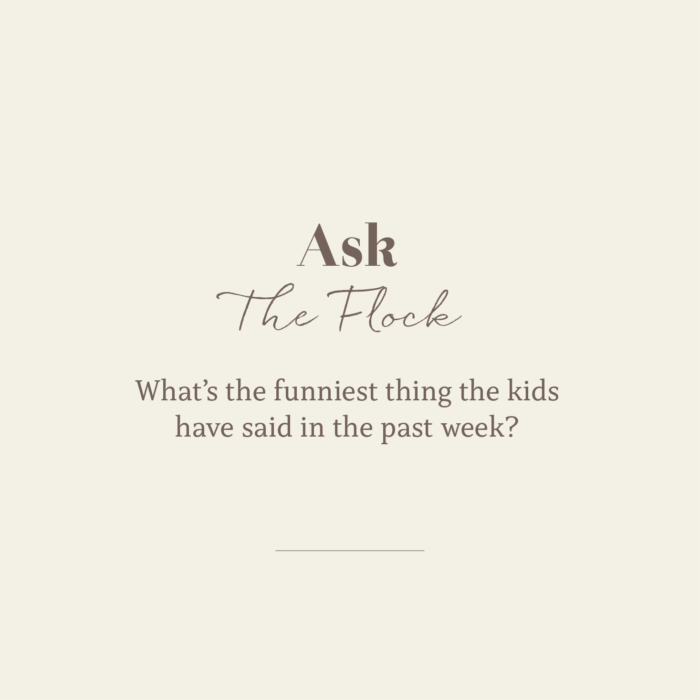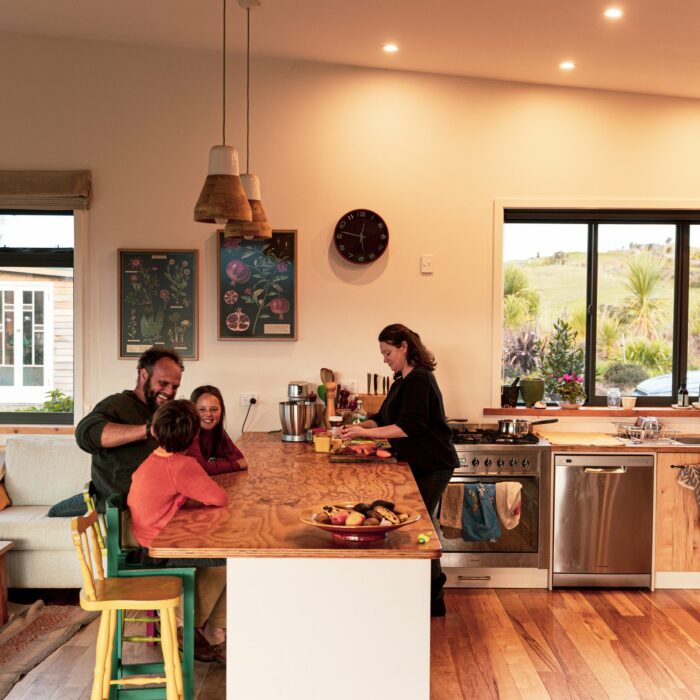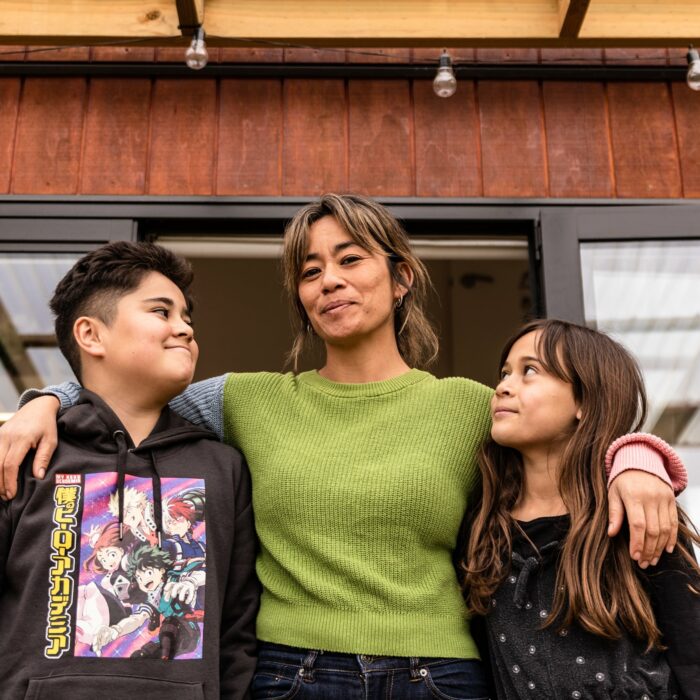19 August 2022
Going with the Flow
Toitū te Whenua, Toiora te Wai. Our Land and Water.
writer: LUCY CORRY
photographer: EMILE HUSSELL
When community members share success stories, trade best practices and encourage others in protecting the health of their river, sustainability actions become more than a sum of their parts. For Jo Leyland, her role as co-convenor of the newly formed Motueka Catchment Collective is a daily reminder of the importance of resilience and what steps still need to be taken to protect future generations.
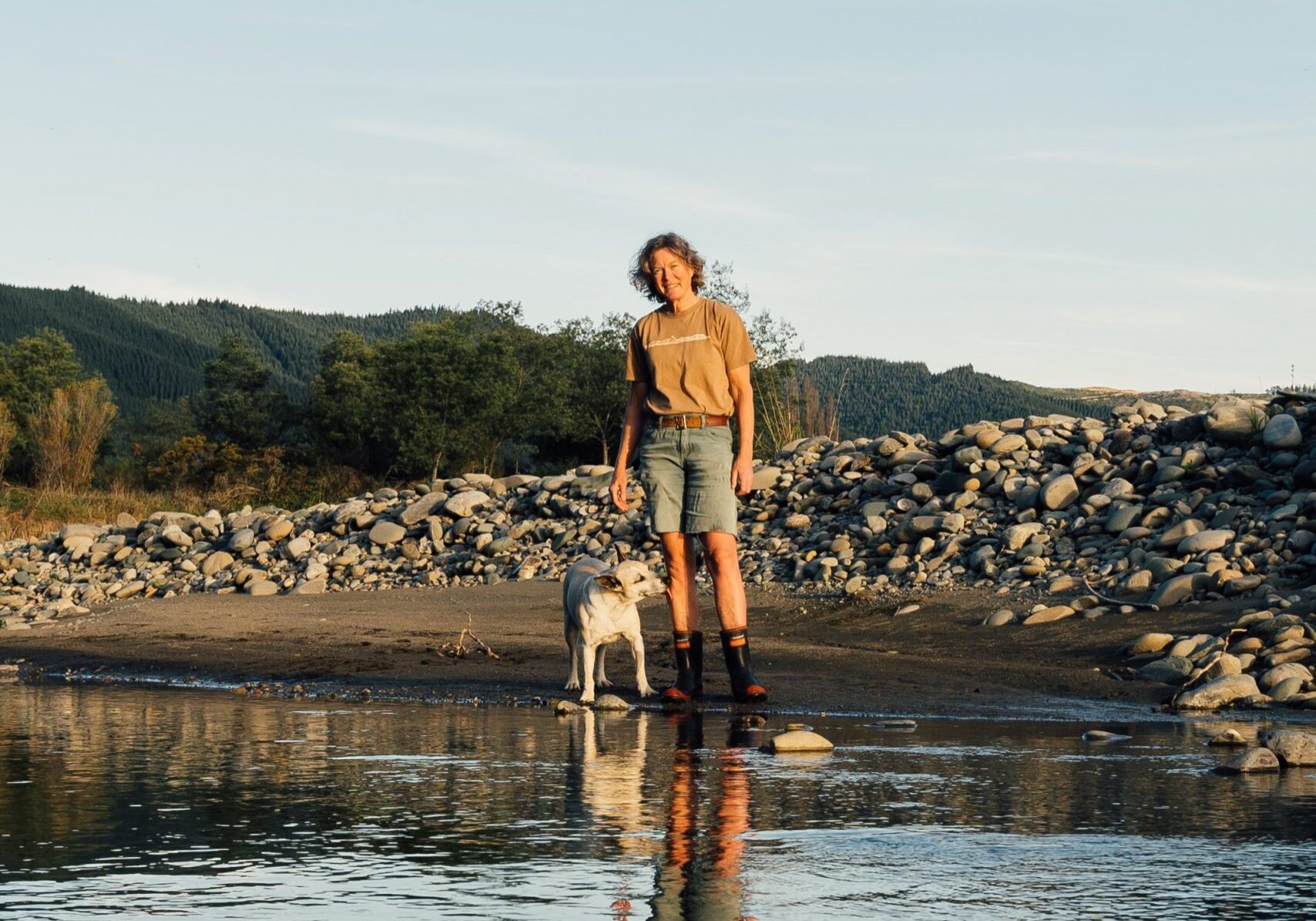
Jo and Staffordshire bull terrier cross, Dune, by the river on the Tapawera farm she runs with husband Tim.
A healthy river is a living metaphor. “There’s nothing better to mobilise around than water,” Jo says. “Mobilising around land is too territorial, and air is too nebulous. But water is everything. Water is life.”
Jo and her fellow volunteer Motueka Catchment Collective members have been learning about and from the 110-kilometre Motueka River that flows through their daily lives. The catchment encompasses an area of about 2,180 square kilometres, from the alpine peaks west of Nelson down to Tasman Bay. “This is a very beautiful herringbone valley, where we’ve got the Nelson Lakes at the top end and we’re bounded by Kahurangi National Park on the west side,” Jo says.
No one in the organising group is a freshwater expert or scientist – they’re simply a bunch of ordinary people who want to play an active role in their community and protect their beloved river. “A lot of us are motivated by doing something positive for our grandchildren,” Jo says. “What happens upstream matters for all of us. The river changes every season. As the climate gets tougher, we’re seeing more droughts and more floods. If your long-term aspiration is a more resilient community, then it’s best to front-foot it.”
"Historically, we have this Western idea that humans are superior to everything, but in the Māori world view, the people belong to the land. I think that's a much better long-term view."
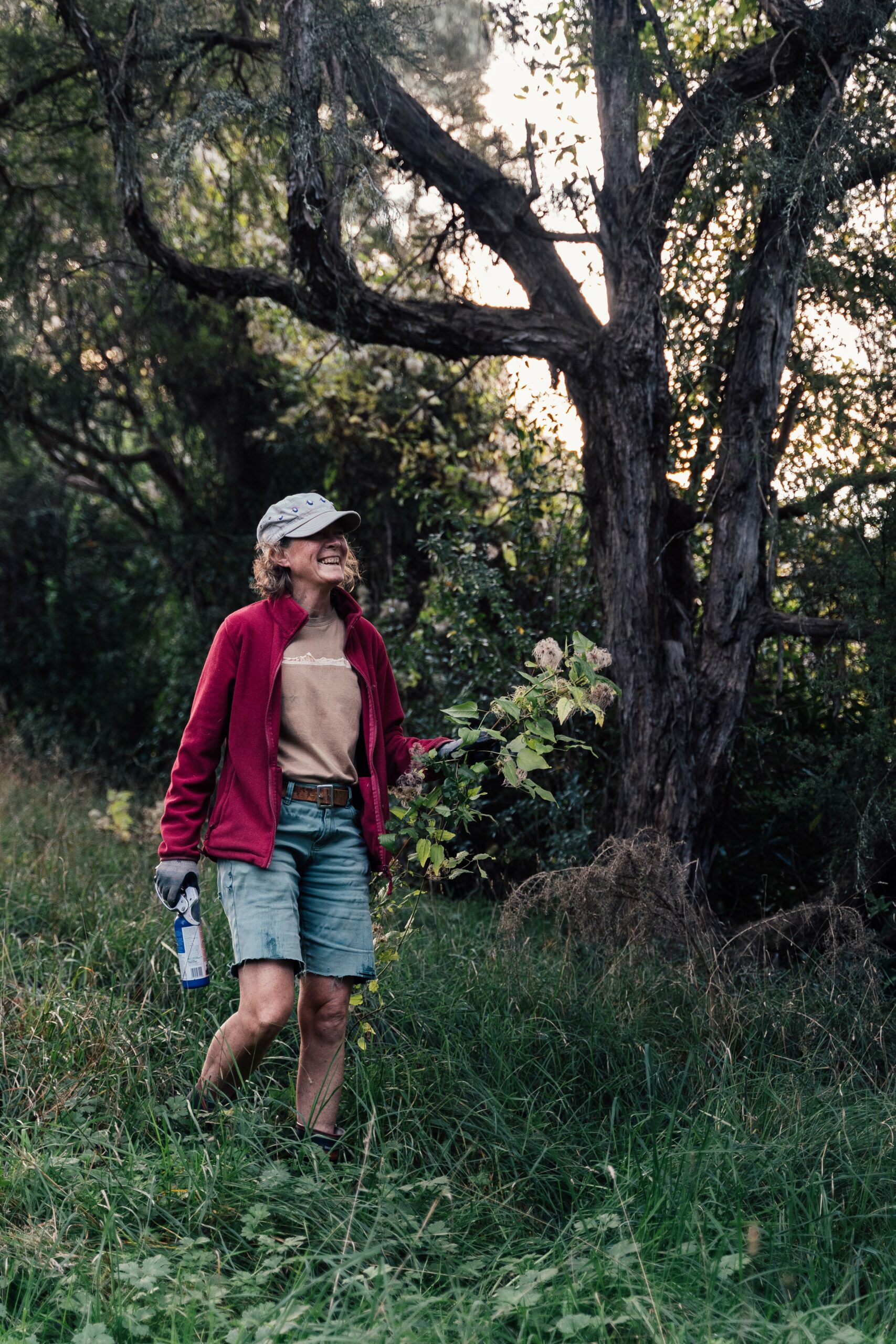
Jo happens to know quite a lot about resilience. She and her family - husband Tim and their three now- adult children - moved to New Zealand from England in early 2010. A few years prior to the move, they'd visited New Zealand for a holiday and looked at a few farms. After spending a mere forty-five minutes on a 65 hectare property at Tapawera in the Upper Motueka Valley, they realised they'd found "the one."
But the path of true love is never entirely smooth. While Tim had grown up on an arable, sheep and beef farm in England, neither he nor Jo had the background of a typical livestock farmer. "Tim and I met in Kenya and our kids were born there," Jo explains. "When we met, I was working for an NGO as a rural transport programme manager and Tim was working for UNICEF as a livestock specialist, establishing veterinary services in a conflict zone in Sudan."
While working on road maintenance projects in Uganda is rather different to farming Wiltshire sheep, Galloway cattle and managing some forestry blocks, Jo says her background was good preparation for their new life. "If I look back at the jobs I've done, I've always been the first person in a role or place. It's exciting taking on a new challenge and seeing how it develops. I've learned that I'm good at networking and building things up from the beginning."
Still, in their first few years on farm, Tim was overseas working for three or four months of the year in Africa, doing international livestock consultancy for the United Nation's Food and Agriculture Organisation. "Tim is the farmer, but while he was away I was running the farm. There was a lot of learning to do. I went through a few bouts of depression, actually," Jo says.
"We'd lived in a lot of different countries and moved around a lot, so when we came here I expected that New Zealand would be very similar to England, but it's not. I think a lot of women who marry into farming struggle in challenging situations and they have to find ways to manage. I think that's probably why I needed to do community work and networking - I needed that to balance being on my own on a farm at the end of the road."
In 2014, in a bid to meet people and learn more about protecting the health of the river bordering her property, Jo did a year- long riparian management course through Agriculture NZ. The programme boosted her knowledge and skills while helping to introduce her to some like-minded neighbours. "We learned a lot of useful things - like strategies for dealing with weeds, soil erosion control, propagation and planting natives - that I could apply to our farm, but it was also great to be able to share the experience with other people, some of whom I'm still in touch with."
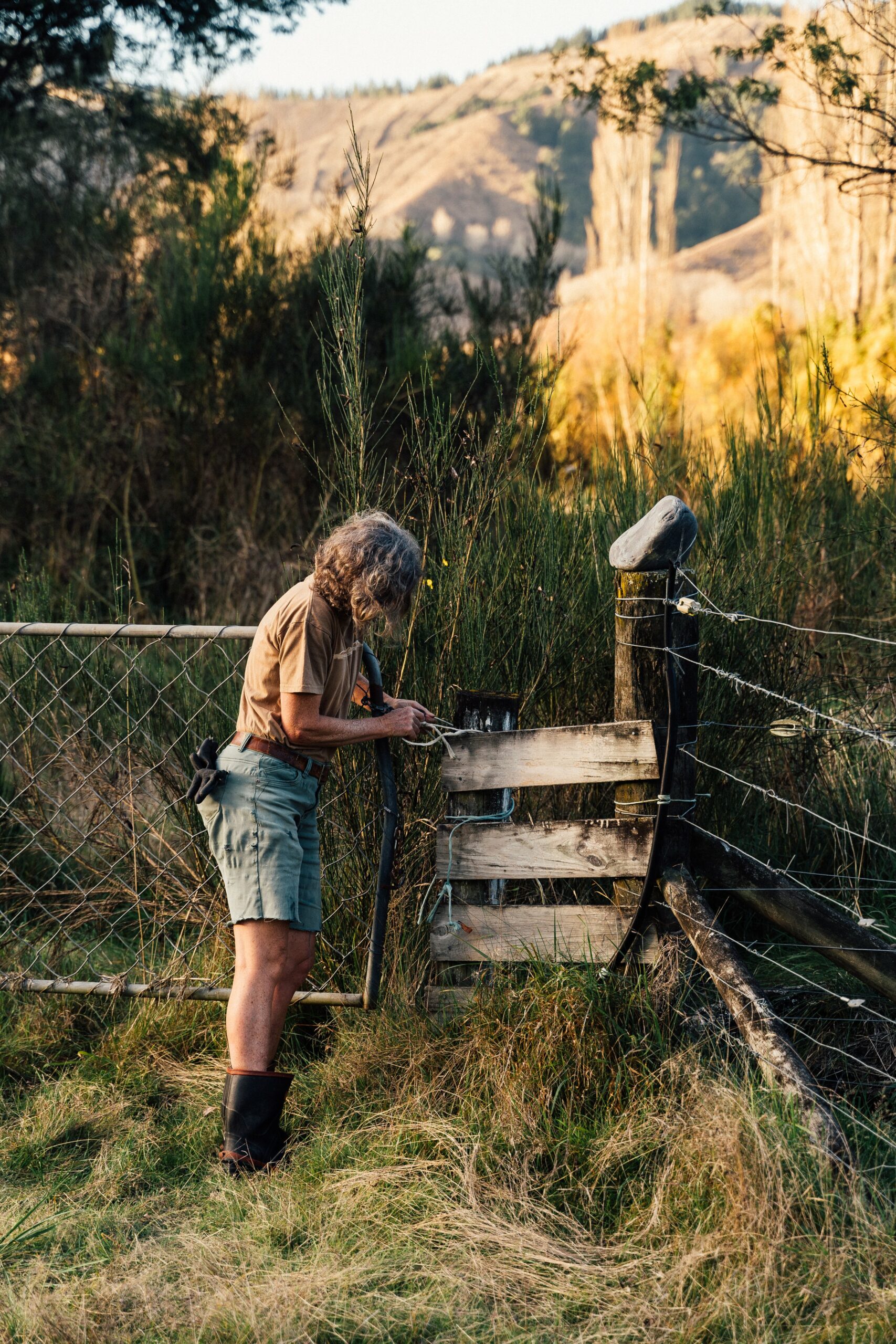
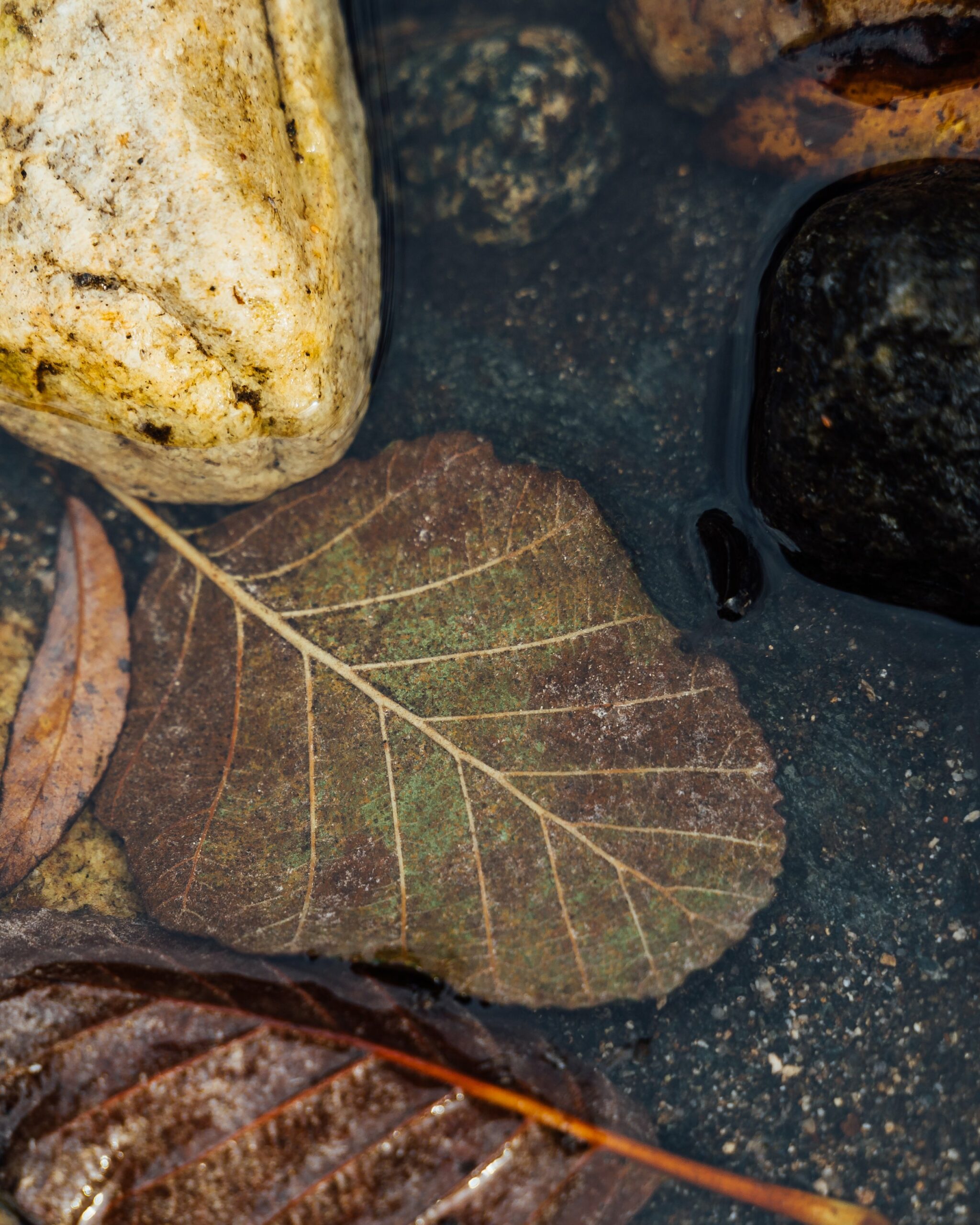
Six years later, she was able to start applying those lessons on a broader scale as one of the founding members of the Motueka Catchment Collective. What started out as "a bunch of locals meeting in the pub" has grown - thanks in no small part to Jo's organisational background - into a highly organised band of volunteer farmers and landowners working together to ensure the collective well-being of the freshwater system and the connected environment.
"Everyone with a strong interest is welcome to join us," Jo says. "We're still in the very early stages, but we wanted to have a flat structure where everyone can play a part without being bogged down with chairs and secretaries."
While Jo's group initially focused on the Upper Motueka River sub-catchment area, they soon realised that a collective approach, connecting all the groups working to protect the waters flowing into the Motueka River, would make it easier to share knowledge, learn together, and seek funding support from other agencies. "With water systems, everything is interconnected in some way. Having a holistic approach means you're much better able to address and consider issues over the longer term, and prioritise where effort needs to go," Jo says.
Since officially forming in November 2020, they've gone from organising educational sessions to more hands-on activities like water-quality testing, plant propagation and planting. Jo says, "We've set up community nurseries and identified eleven sites along the river - some of which are on public land and some on farm wetlands - that will each be planted with 450 seedlings this winter."
Activities by the Collective are having an impact on the wider community, too. After the region experienced severe rainfall in July 2021, they held a session on flood resilience. Kids at Tapawera Area School are learning about biodiversity initiatives in the area, including visiting farms in the catchment and learning about native plantings.
While activity in the Collective will naturally ebb and flow just like a river, Jo says those involved feel lucky for a number of reasons. "Our catchment is probably different to others: our river quality is probably still quite good, for a start. Even so, what we're doing requires a lot of thinking and working through issues like how we should operate and how we can partner with local iwi so we are working in tandem," she says.
"Working on this takes a lot of time and energy and we're all volunteers, so we want to enhance the capability of our group. One of the things we've been very strong on from the outset is that we don't want to exclude anyone. We don't want to point the finger at anyone, we're all in it together and we all want to try to make things better. We're still learning, but it's a good thing to do. This is a very special river and it brings us all together."
Sharing stories about what catchment groups have achieved can give all New Zealanders a clearer picture of the efforts underway to improve our freshwater. If you're part of a catchment group and want support to share your story, visit ourlandandwater.nz/register. This piece is the second in a series exploring how we are protecting Aotearoa's waterways, supported by the Our Land and Water National Science Challenge.
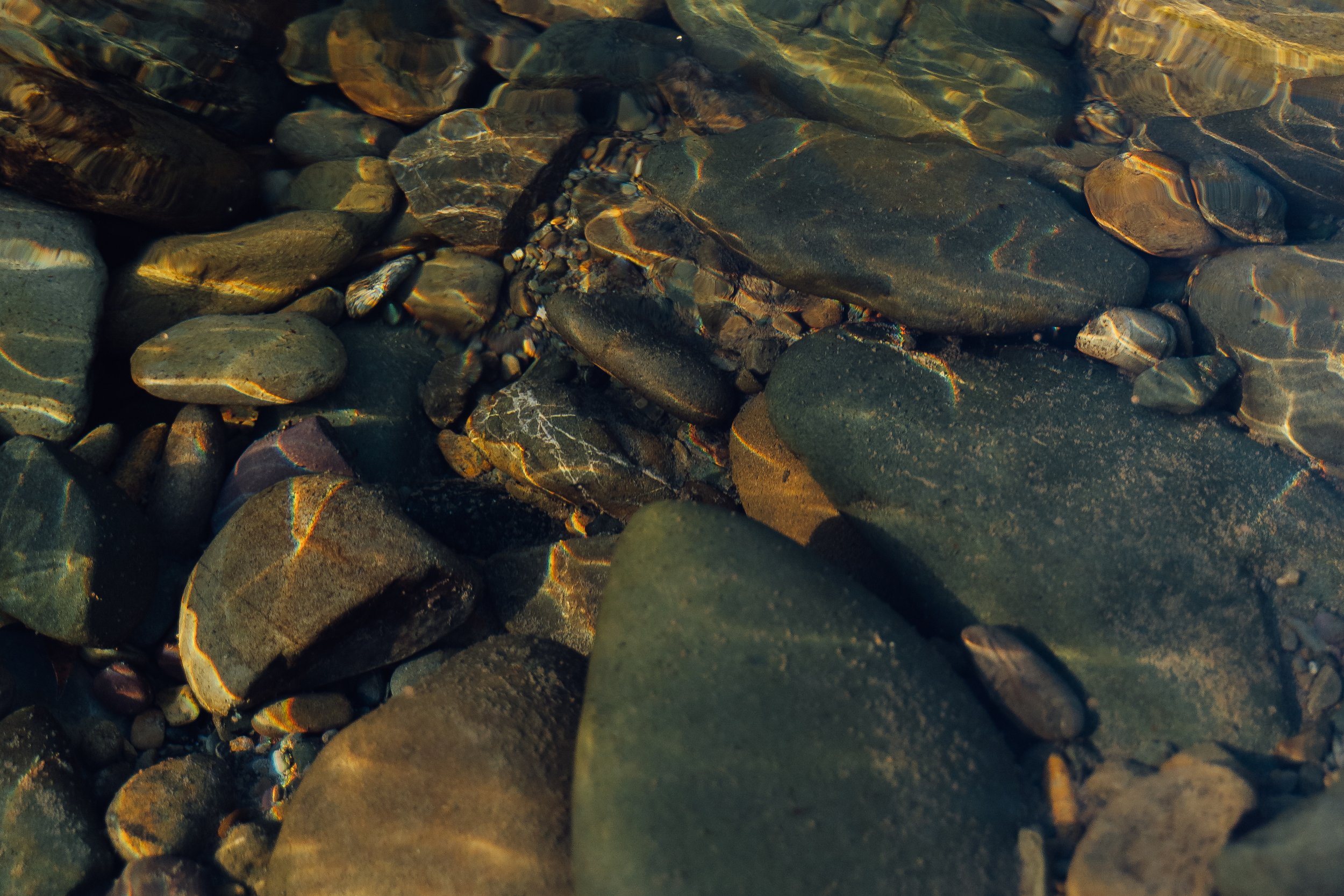
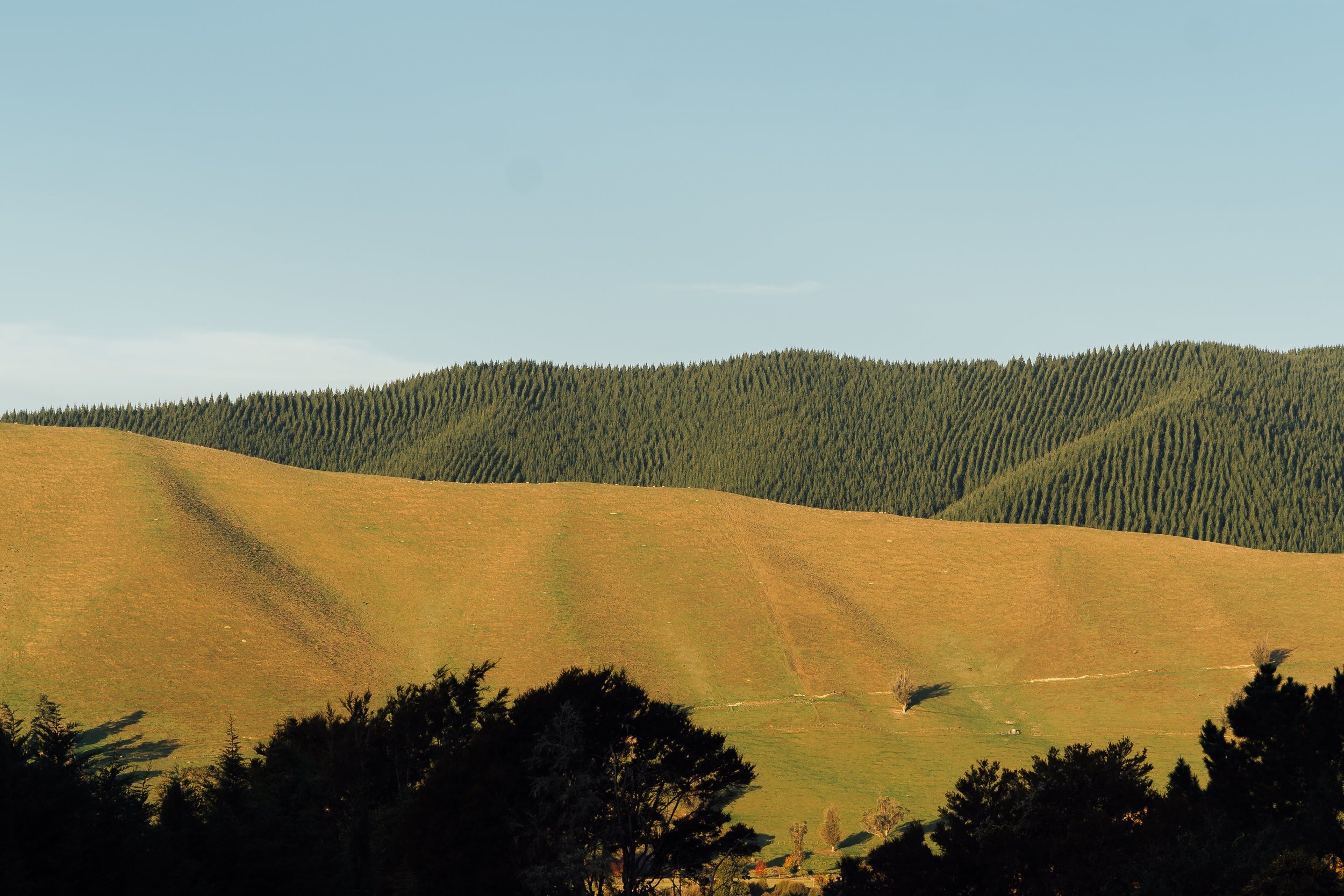
If you enjoyed this story, please share with someone else.
This story appeared in the Takurua Winter 2022 Edition of Shepherdess.
Get your hands on a copy.
